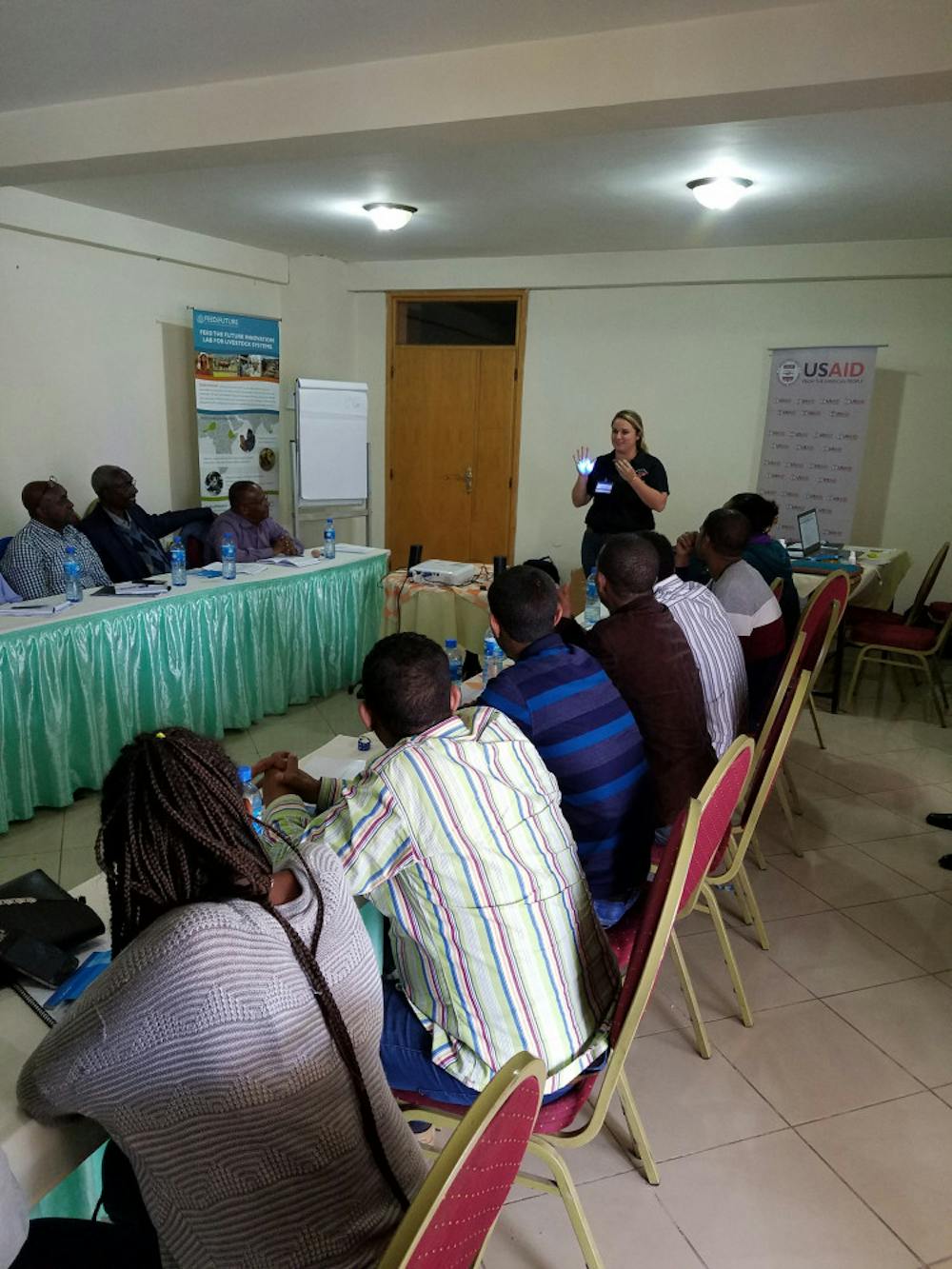Two UF officials traveled nearly 8,000 miles to teach Ethiopian butchers food safety tips.
The Feed the Future Innovation Lab for Livestock Systems, which received $49 million from the U.S. Agency for International Development, is part of UF’s Institute of Food and Agricultural Sciences, said Adegbola Adesogan, a professor in the UF Department of Animal Sciences.
The goal of the trip was to help improve the nutrition, health, income and livelihood of poor residents in Ethiopia, Cambodia, Nepal, Niger, Rwanda, Uganda and Burkina Faso, Adesogan said. The project started with Ethiopia as the first country and will continue to the other six nations.
“What we are really trying to do is conduct research or do training that addresses problems in production of livestock or in consumption of meat, milk and eggs,” Adesogan said. “Unlike in the U.S. or in western countries, people in the countries where we work get very little meat, milk and eggs.”
Poor people in these countries consume mainly carbohydrate-based meals, causing a lack of vitamins and minerals that are vital for development and a balanced diet, Adesogan said. He said improving food safety will help improve nutrition.
When butchers in Ethiopia asked UF for help with improving the hygiene of their meat handling processes, UF sent Jason Scheffler, an assistant professor in the UF Department of Animal Sciences, to train them on basic hygiene practices and safe consumption.
Scheffler went to Ethiopia as a meat science expert. He traveled there in October to assess existing practices.
“You really have to put yourself in their shoes and get on the ground in their country to really understand what the problems are,” he said. “That meat assessment was really beneficial because I had made some assumptions about how they do business that were just wrong.”
From Aug. 25 to 29, Scheffler and UF graduate student Taylor Langford conducted a “train-the-trainer” program for meat hygiene, meaning the people they trained would go on to train others throughout the country.
“I don’t speak the language, and I certainly don’t have the budget to spend a lot of time to travel the country doing the training myself,” Scheffler said.
Scheffler said he taught techniques that could be implemented with little money and infrastructure.
“Something I had to be very cognizant of was making sure that the things that we were suggesting were rational and would result in sustainable change,” he said.
Scheffler said the butchers reacted positively to the training.
“One of the things in Ethiopia is, historically, they like to eat beef raw,” he said. “By the time we left, we had a number of people say that they are probably going to not do that anymore.”
Taylor Langford teaches participants in Ethiopia how to properly wash their hands and how easily germs can spread using Glo Germ and a blacklight.






